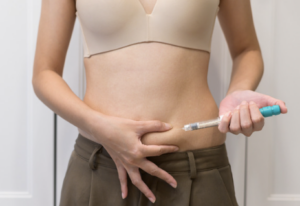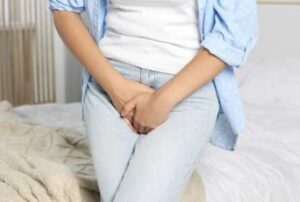We hear a lot about Vitamin D — but what actually are the benefits of it, and how does it relate to Endometriosis?
Uses of Vitamin D in the body
Vitamin D is an essential vitamin, which is used by the body for multiple function including:
- To keep bones and teeth healthy
- For healthy muscle function
- To reduce inflammation
- Cancer prevention
- Help with the control of infections
This is because it helps the body to absorb and retain calcium and phosphorous, which play an essential role in the above processes.
Vitamin D has also increasingly been linked to reproductive health, including risk of ovarian cancer, hormonal disorders, and more — so it is safe to say that this an important vitamin!
What about those with Endometriosis?
Women with Endometriosis typically have a vitamin-D deficiency.
If you are unsure or curious as to whether you have a Vitamin D deficiency, then we recommend taking our Nutrient & Wellness Test, which measures your Vitamin D levels, as well as many other vitamins and nutrients in your body (such as cholesterol, Vitamin B12, Iron, and more).
Our packages come with a free consultation with one of our experts, who can guide you through your individual results, as well as create a tailored nutritional and supplement plan for you to reach your health goals!
How can increasing my Vitamin D intake improve my Endometriosis symptoms?
As Vitamin D plays a large role in inflammation, making sure that you have regular levels can really help with managing the higher inflammation associated with endometrial tissue. This can help with some of the uncomfortable symptoms or pain that this causes.
How can I increase my Vitamin D levels?
Naturally sources of Vitamin include:
- The Sun
- Fatty fish
- Liver
- Eggs
- Mushrooms
The Sun is the most important source of Vitamin D. Getting outside as much as possible during the day, such as for a short walk, has so many benefits beyond upping your vitamin D intake — so is something we definitely recommend if you want to start taking steps towards a healthier life!
However, for those living in colder climates, food sources do not contain huge amounts of Vitamin D, so we would recommend taking a supplement. Please speak to a healthcare professional before starting to take any supplements however, as everyone is different and so requires different amounts of supplementation.
Another point to remember is that Vitamin D is fat-soluble. Therefore, make sure you take your supplement with a fat or oil to absorb it. This could mean taking it with an Omega-3 supplement, with your eggs at breakfast, or with any other meal which contains oil.
We hope that this helps and has given a little more insight into how you can start to take back control of your own health!
Fariba Khonsari







